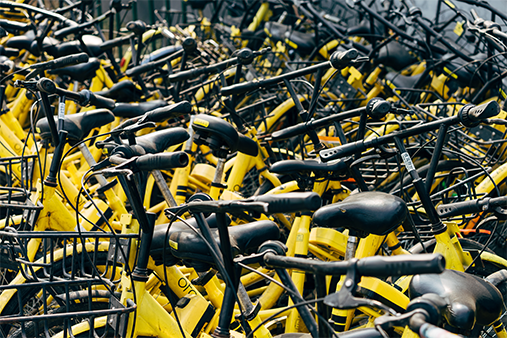More or less overnight, Chinese cities were covered in colourful dockless bikes that could be unlocked with a smart phone, totaling 2.3 million bikes in Beijing in 2017, provided by 15 companies. While the increase in ride-hailing does not have the same eye-striking effect, it too has had major impact on how urban Chinese travel, especially after a fierce price war between the two leading companies.
These services are often referred to as "shared transport" and regarded as an important part of the sharing - or maybe more correctly - the platform economy. While shared transport is often associated with sustainability, it is hardly so by definition. Sustainability will rather depend on a number of factors related to user practices, regulations and production. In turn, as urban Chinese change the ways in which they move about the city, transport planning may follow suit. This seminar will discuss how these private companies are negotiating their place in Chinese cities, focusing on Beijing.
About the speaker
 Thea Marie Valler is a PhD candidate at the Norwegian University of Science and Technology (NTNU). Her research is focused on decarbonisation of urban transport in China, specifically the role of private companies providing ride hailing and bike-sharing services, and their role in in sustainable transitions.
Thea Marie Valler is a PhD candidate at the Norwegian University of Science and Technology (NTNU). Her research is focused on decarbonisation of urban transport in China, specifically the role of private companies providing ride hailing and bike-sharing services, and their role in in sustainable transitions.
Lunch will be served. Please register by September 3:
